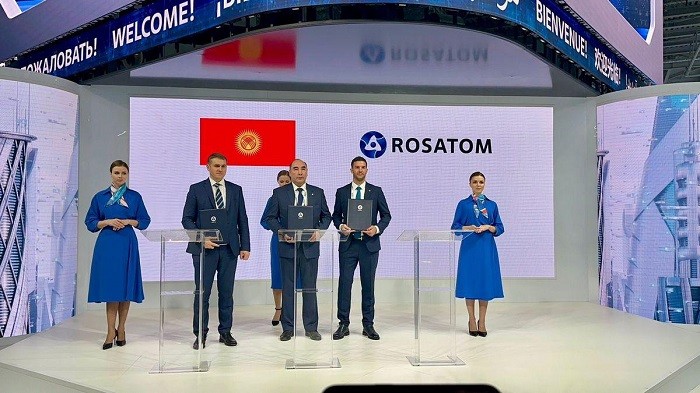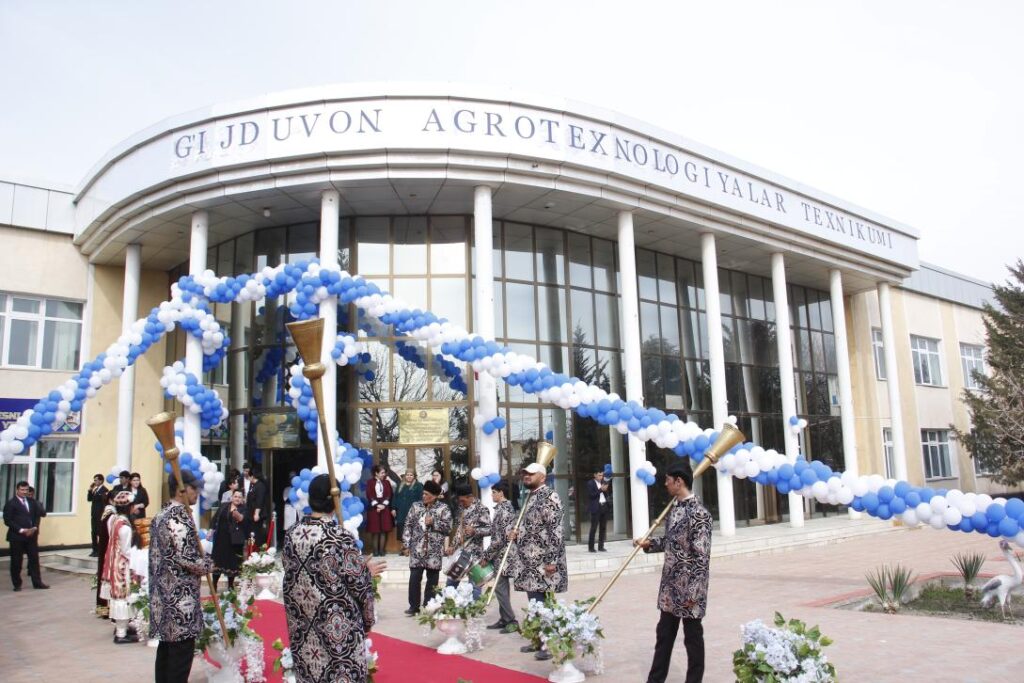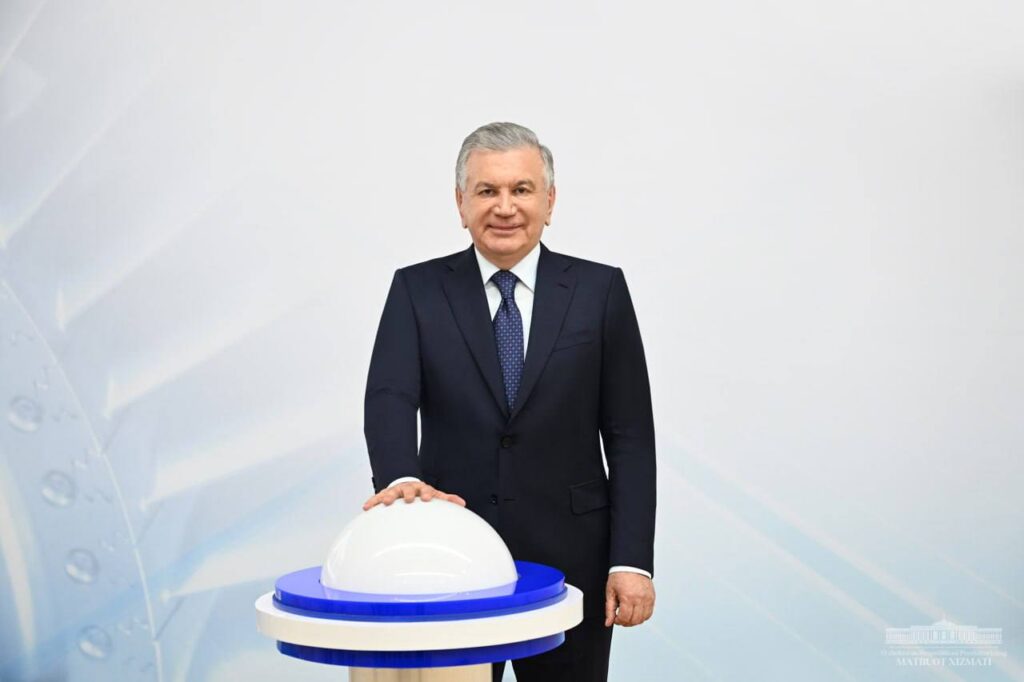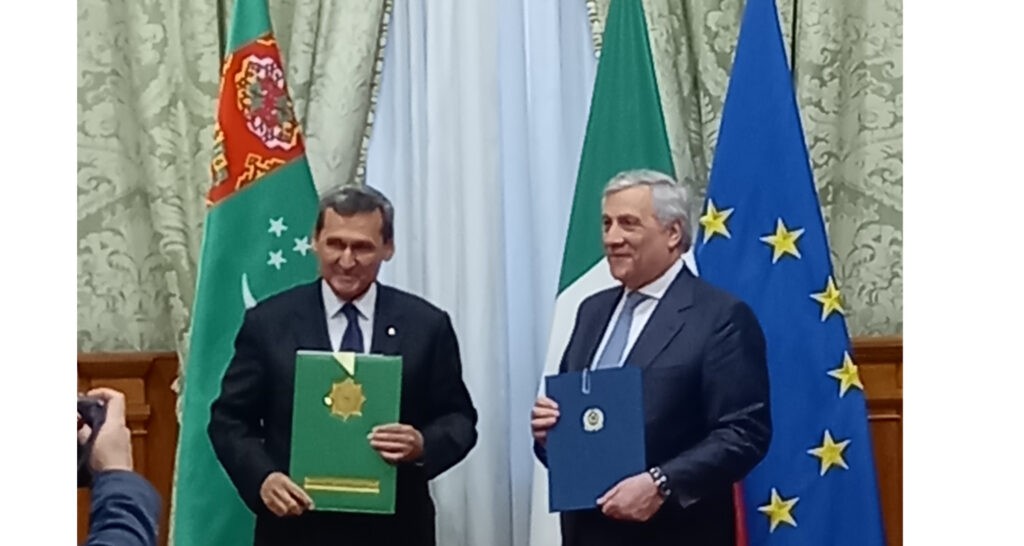Viewing results 919 - 924 of 1099
According to the Statistics Agency of Uzbekistan, in January-February 2024, imports of natural gas increased 95-fold at a cost of $166.7 million. In the same period, Uzbekistan also increased its imports of oil by 5.3% costing $302.9 million and coal by 43.6% costing $42 million. Imports of electricity doubled, costing $36.4 million. In the first two months of 2024, natural gas production in Uzbekistan amounted to 7.7 billion cubic meters; a decrease of 454 million cubic meters compared to early 2023. Oil production decreased by 8.8 thousand tons to 118.5 thousand tons, and coal production decreased by 23 thousand tons to 659 thousand tons.
On March 26th, at the 13th ATOMEXPO 2024 International Forum in Sochi, Russia, Kyrgyzstan’s Ministry of Energy and Russia’s State Atomic Energy Corporation Rosatom announced joint investment in the construction of renewable energy facilities in Kyrgyzstan with a capacity of up to 1 GW. The agreement was signed by Grigory Nazarov, General Director of the Wind Energy Division of Rosatom; Talaibek Baigaziev, Deputy Minister of Energy of the Kyrgyz Republic, and Dmitry Konstantinov General Director of Rosatom’s office in Kyrgyzstan. According to Rosatom, the first stage of the project will involve the implementation of a pilot project for the construction of a wind power plant with a capacity of 100 MW in Kyrgyzstan’s Issyk-Kul region. The Russian company has already installed a mast for wind measurement and is undertaking surveys on the location of wind farms. The second stage will include the development of additional sites for renewable energy facilities with a total capacity of up to 900 MW.
The Gijduvon Technical College of Agro Technologies recently opened its newly renovated facilities in Bukhara at an event attended by representatives of UNESCO, local government officials, the college's staff and students, and members of Gijduvon’s community. Integral to the 'Skills Development for Employability in Rural Areas of Uzbekistan' project, the renovations were funded by the European Union. Since its inception, Gijduvon College has been committed to providing vocational education for rural youth. Supported by the European Union, UNESCO’s extensive renovations have modernized workshops, classrooms, and laboratories through the installation of new flooring, ceilings, and enhanced lighting. In addition to revitalizing learning spaces, the project has also provided essential tools and resources, including tractors, greenhouses, refrigeration units, and contemporary furniture. By contributing to the College’s success in equipping students with the skills necessary for work in agriculture and irrigation, the improved facilities will help further sustainable development and enhanced living standards in rural Uzbekistan.
On March 25th, Uzbekistan President Shavkat Mirziyoyev pressed a symbolic button to launch the construction of new power plants in the country’s Namangan region. Today, the Namangan region has 913 megawatts of generating capacity. Over the past three years, electricity consumption in the region has increased by 24 percent and to meet the ever-growing demand, three projects have been launched with a total capacity of 1,228 megawatts at a cost of $1.1 billion. The projects comprise a cascade of hydroelectric power plants and two solar power plants. The Uzbekhydroenergo joint stock company will invest $434 million in a cascade of 6 hydroelectric power stations. With a total capacity of 228 megawatts, the plants will generate 1 billion kilowatt-hours of electricity per year, saving 310 million cubic meters of gas and providing electricity to 430 thousand households. The German company Hyper Partners GmbH will build a solar power plant with a capacity of 500 megawatts. The cost of the project is $350 million and the annual capacity, 1.095 billion kilowatt-hours. Another solar power plant will be built in cooperation with Tepelen Group Holding Limited from the United Arab Emirates. Its cost will also be $350 million and its capacity, 500 megawatts. The connection of the above power plants to the power grid is scheduled for completion by the end of this year. Combined, the projects will provide the Namangan region with an annual generating capacity of 2141 megawatts and 7.8 billion kilowatt-hours of electricity. Since this is more than enough to cover the region's need for 5.5 billion kilowatt-hours, any excess electricity will be sent to neighbouring Andijan and Fergana.
On March 25th, Marat Karabaev, Kazakhstan’s Minister of Transport visited Urumqi in China’s western Xinjiang Uyghur Autonomous Region, home to the International Dry Port, the Express Delivery Center (Jitu Express), the China-Europe Railway Express Hub, and the office of the Xinjiang Trade and Logistics Corporation. The occasion marked the anniversary of the departure of the 150th container train, Tian Shan, along the China-EU route. During the ceremony, it was stated that over the 10-year period since the launch of China’s Belt and Road initiative in 2013, about 85 thousand container trains were sent from China to Europe; 80% of which had passed through Kazakhstan. Earlier this month, the Kazakh government announced plans to increase the volume of cargo transported by rail to 450 million tons and by road to 316 million tons. The proposed increase in transit transportation to 30 million tons will include that of cargo along the Trans-Caspian International Transport Route to at 4.2 million tons.
A Turkmen delegation led by the Deputy Chairman of the Cabinet of Ministers, Minister of Foreign Affairs of Turkmenistan, Rashid Meredov visited Italy on March 20th for negotiations with the Deputy Prime Minister and Minister of Foreign Affairs of Italy Antonio Tajani. The foreign ministers discussed bilateral relations in political, diplomatic, trade, economic, cultural and humanitarian sectors. The Turkmen Foreign Minister also held talks with the Deputy Prime Minister, Minister of Infrastructure and Transport of Italy, Matteo Salvini and top representatives of the Italian transport sector. The parties discussed expanding cooperation in the field of railway and maritime transport, and signed a Memorandum of Cooperation between the ports of Turkmenbashy (Turkmenistan) and Naples (Italy).






